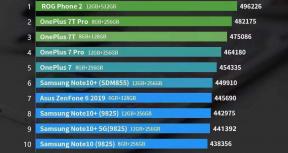Secrets productivity Alan Turing
Tips Productivity / / December 19, 2019
Alan Turing - the famous English mathematician, logician, cryptographer. It is rightly called the father of the founder of the theory of computer science and artificial intelligence (AI).
And although in recent years (for some reason) to discuss more private life and tragic death of the scientist, Turing made an enormous contribution to the development of science. It was he who invented the "great-grandfather" of modern computers - "Turing machine", has developed an empirical test to assess the intelligence of machines, and made a number of other exciting discoveries.
Together, let us know the productivity secrets of Alan Turing.
Breaking large tasks into smaller ones
One characteristic of Alan Turing was the ability to break down a large task into smaller ones to methodically, step by step, solve them. Of course, the overall picture has always been in his mind, but as a true genius, Turing was very attentive to detail. This allowed him to achieve results.
So, working on the Turing Bombe, designed to decrypt messages fascist war, Turing carefully studied the German cipher machine - "Enigma Wehrmacht» (Wehrmacht Enigma). The operation of the latter, so-called substitution cipher, when one character is changed to another (e.g., instead of the letter "B" is reproduced «S», etc.). When you press the keys on the rotors are set in motion that led to various cryptographic transformations.
Turing and his team carefully studied the message, the text of which was obviously known (eg, weather reports), as well as errors of German operators forget to switch settings "Enigma." It is possible to create a Turing Bombe, enumerates all the possible patterns cipher.

Alan Turing excellent knowledge of such principles of the system approach, as the hierarchy and structuring. Which allowed him to successfully address major scientific challenges.
Creative chaos
A well-known business coach Kerry Gleeson, a program of personal effectiveness in their book "Work less, get more done" He writes: "The entropy can be defined as the measure or degree of disorder of the system, leading to its destruction. In physics, entropy is associated with the second law of thermodynamics. In the universe, the law, according to which all systems go from an ordered state to a state of chaos, which leads to an increase in their complexity. You want an easy life? Make order an integral part of their everyday workflow! If you want to work in the ordered environment, you must be aware of the fact that the medium tends to chaos, and you need to work on the maintenance of order. Try some time not to care for the garden - and soon will see firsthand the effects of entropy. "
Indeed, many are convinced that without the order of the workplace effective action is impossible. However, in this position a lot of opponents who believe that little mess does not interfere, but it helps the creative process.
Alan Turing was a prime example. While working in the British cryptanalytic bureau even stuck the nickname for him - "the mad scientist of Bletchley Park." "Madness" was manifested in the fact that Turing often forget to wear socks or tie, has always been immersed in deep thought, could interrupt the interlocutor in mid-sentence. His desk was always piled high with a variety of securities, accounts, notes, he could at any moment to rush to the table to write down who came up with the idea. And, judging by his scientific achievements, the disorder does not interfere with productive work.

Sport as a way to clear the mind
In addition to the progress in the scientific field, Turing achieved a lot in the sport. He was actively engaged in running and played for Athletic Club Walton. In addition, in 1945, Alan Turing ran a marathon in 2 hours, 46 minutes and 3 seconds, which is just 11 minutes ahead of the Olympic champion in 1948.
As you know, exercise contribute to clarity of thought. Alan Turing confessed that he had so much hard work, that sport is the only way to organize his thoughts.

It is difficult to objectively assess the scientific legacy of Alan Turing, but one thing is clear - he was able to do a lot in a short life in '42.
A photo: 1, 2, 3, 4


